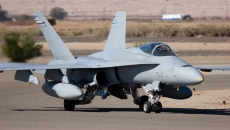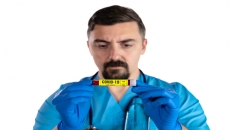DETROIT - Those lightly travelled freeways and streets could be putting a few dollar bills into your wallet.
With most states under stay-at-home orders from governors, traffic is down almost everywhere, and that means lower crash rates and fewer insurance claims.
As a result, most auto insurance companies are cutting rates, sending checks or offering credits on monthly bills.
But consumer advocates say the refunds and rate cuts in many cases aren’t big enough to correspond with the falling number of crashes. In Washington and New York, for example, state police reported 30% fewer crashes in March than the same month a year ago. And stay-at-home orders in those and other states weren’t imposed until late in the month.
Consumer groups say here’s what to look for on your auto insurance bills:
REFUNDS AND CREDITS: Most major insurance companies have promised to send checks, credit future bills or reduce premiums because people are driving so much less. State Farm and American Family tied for top letter grades of “A” from the Consumer Federation of America. State Farm is offering credits on future bills amounting to 25% on premiums from March 20 through May 31. That’s about $20 per month per vehicle. American Family is refunding $50 per vehicle, which is equal to 21% of premiums for April and May, the federation says. Some companies have made vague promises of future rate cuts, but that won’t help owners who are out of work and need money now, the federation says. In most cases auto owners won’t have to do anything to get the refunds, which will be automatic.
WHAT IF MY INSURER ISN’T PLAYING? The Consumer Federation suggests calling your company and doing two things: Tell them you want a rate reduction because you’re driving far less than you were when you signed up for the policy. Most insurers reduce rates when cars are driven fewer miles. The other thing is to ask if the company plans to offer credits or cut rates because overall crashes are down. If the company refuses to do this, protest on social media and threaten to take your business to another company that’s offering lower rates, the federation says. If you are with a smaller company that’s affiliated with a larger insurer, the smaller company may not be offering the refunds or rate cuts. Also, most insurers that serve low-income drivers haven’t been offering anything, the federation says.
WHAT ELSE CAN I DO TO CUT MY PAYMENTS? Most companies will work with customers to delay payments for a month or two, but customers need to ask for help, the federation says. Some, like Allstate, will defer payments for a couple of months and spread them out over the remainder of the policy term.
SHOULD I JUST CANCEL MY INSURANCE: Insurance companies and the consumer federation say no. Doug Heller, a federation insurance expert, says nearly all states require you to have insurance coverage, and if it lapses, in many states companies will charge you more when it restarts. “Insurance companies can punish you,” said Heller. Insurers also say that weather or other events can damage a car, so you should keep it insured even if it stays parked in the garage.
AS THE LOCKDOWNS CONTINUE, WHAT SHOULD I EXPECT? In April, discounts should be larger because stay-home orders will have been in effect in many states for the entire month, the federation says. As some businesses gradually are allowed to reopen, traffic still will be down into the summer, and that should bring further discounts, the group said. But it remains to be seen if the discounts will grow or stay in effect longer.
“We’ll have to see where the data takes us,” said Glenn Shapiro, president of personal property and liability for Allstate, which is offering 15% discounts for April and May that amount to about $60 per customer. Passenger vehicle travel was down 48% nationwide the week of April 6 when compared to the final week of February, when automobile travel was normal, according to the traffic information firm Inrix. But Shapiro says lower traffic doesn’t automatically translate to reduced costs for insurers. As the crisis goes on, the collision repair parts supply chain is being disrupted, driving up costs, he said. Allstate also incurs costs when payments are deferred, and it could see people switch to other companies after the two-month deferral period, he said. Also, companies still have expenses such as claims departments, which won’t be downsized even though crashes are down, because they’ll be needed later, he said. “Accidents are only part of the expense of insurance,” Shapiro said.

.jpg)




